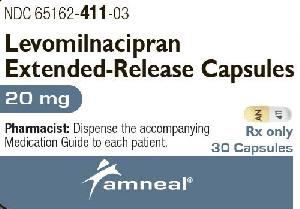Levomilnacipran Interactions
There are 372 drugs known to interact with levomilnacipran, along with 8 disease interactions, and 2 alcohol/food interactions. Of the total drug interactions, 115 are major, 256 are moderate, and 1 is minor.
- View all 372 medications that may interact with levomilnacipran
- View levomilnacipran alcohol/food interactions (2)
- View levomilnacipran disease interactions (8)
Most frequently checked interactions
View interaction reports for levomilnacipran and the medicines listed below.
- Adderall (amphetamine / dextroamphetamine)
- Afrin (oxymetazoline nasal)
- Aleve (naproxen)
- Allegra Allergy (fexofenadine)
- Armour Thyroid (thyroid desiccated)
- Ativan (lorazepam)
- Augmentin (amoxicillin / clavulanate)
- Benadryl (diphenhydramine)
- BuSpar (buspirone)
- Celexa (citalopram)
- Colace (docusate)
- Cymbalta (duloxetine)
- Effexor (venlafaxine)
- Effexor XR (venlafaxine)
- Klonopin (clonazepam)
- Lexapro (escitalopram)
- Linzess (linaclotide)
- Paxil (paroxetine)
- Percocet 10 / 325 (acetaminophen / oxycodone)
- Probiotic Formula (bifidobacterium infantis / lactobacillus acidophilus)
- Prozac (fluoxetine)
- Seroquel (quetiapine)
- Tylenol (acetaminophen)
- Vicodin (acetaminophen / hydrocodone)
- Vitamin B12 (cyanocobalamin)
- Vitamin C (ascorbic acid)
- Vitamin D3 (cholecalciferol)
- Vyvanse (lisdexamfetamine)
- Wellbutrin (bupropion)
- Wellbutrin XL (bupropion)
Levomilnacipran alcohol/food interactions
There are 2 alcohol/food interactions with levomilnacipran.
Levomilnacipran disease interactions
There are 8 disease interactions with levomilnacipran which include:
- depression
- renal disease
- glaucoma
- hypertension
- hyponatremia
- mania
- seizures
- urinary tract obstruction
More about levomilnacipran
- levomilnacipran consumer information
- Compare alternatives
- Reviews (212)
- Drug images
- Side effects
- Dosage information
- During pregnancy
- Drug class: serotonin-norepinephrine reuptake inhibitors
- Breastfeeding
- En español
Related treatment guides
Drug Interaction Classification
| Highly clinically significant. Avoid combinations; the risk of the interaction outweighs the benefit. | |
| Moderately clinically significant. Usually avoid combinations; use it only under special circumstances. | |
| Minimally clinically significant. Minimize risk; assess risk and consider an alternative drug, take steps to circumvent the interaction risk and/or institute a monitoring plan. | |
| No interaction information available. |
Further information
Always consult your healthcare provider to ensure the information displayed on this page applies to your personal circumstances.


